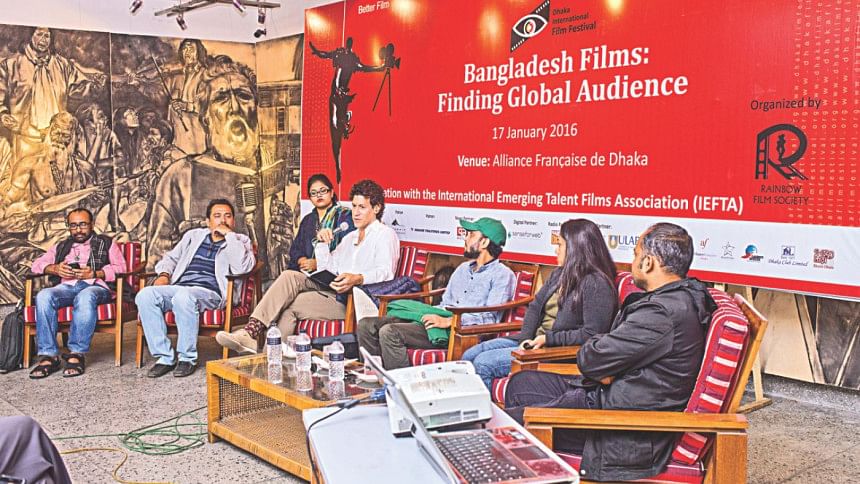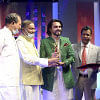ONWARDS TO CANNES

So are you a full time filmmaker?
Yes I am. I have had my films released in places like Sundance, Tribeca and other such festivals. I also have experience doing narrative work, and documentary work. My next film is scheduled to be released on May 6th this year in the UK and Ireland, but unfortunately I will miss the premiere as I will be busy working here.
Tell us briefly about IEFTA
The IEFTA (International Emerging Film Talent Association) is based in Monaco where we also had our inaugural festival in 2007 and by 2008, we started in earnest. Our mandate is to assist emerging filmmakers from emerging countries. We started with Ethiopia in 2008 because we found that it matched many of the criteria we were looking for. The country has its own fair share of hardships but what we mostly know about the country is just not right. The common knowledge regarding Ethiopia is that the country is ravaged by war and disease, which was true in the 80s but not now. Now it's one of the fastest growing countries amongst emerging economies. We worked with a lot of the local organizations who were keen on supporting the film industry there. And to date, we had several filmmakers join the program. In fact, in 2014, we brought in 5 filmmakers from Addis Ababa to the Cannes film festival.

So how does this all work?
As a western filmmaker, I am well connected with filmmakers both in the US and in Europe. I have contacts who I can bring on board with an idea and arrange crews to start shooting. These contacts are the results of my regular attendances in film festivals, as I have been attending them since the late 90s. Other directors and filmmakers are also familiar with me and my projects. The dilemma is that countries like Bangladesh, Ethiopia, Sudan, and Somalia don't have the benefits of such contacts because these countries are mostly absent from such illustrious festivals. There are probably even more talented filmmakers who reside in these regions but because they don't have these contacts, they are missing out on a world of opportunities to express their ideas. And that is where we come in. Our purpose is to introduce these talented filmmakers to our contacts, and indeed, other filmmakers so that they can take their first steps towards a global audience. We also give these filmmakers tips on engaging the interests of these contacts. A good example would be the five candidates we brought to Cannes. Four of them were women. We taught them to stand out so that they aren't forgotten because they had two big hurdles to overcome; A. They were women in a man's world and B. They are from an emerging country and people would tend to pity, which they cannot allow. We usually work with universities, and other educational institutions as well as filmmakers. We go through the submitted entries and pick out what we think is best, and from then on we finance their trips and introduce them to our contacts. These contacts, based on whether the applicants can impress them or not, would then agree to finance their films.
So what plans does the IEFTA have for Bangladesh?
We want to replicate what we have been doing for Ethiopia here in Bangladesh. We want to work with established organizations like universities, film schools, and with actual directors, journalists, and the government. Through all these organizations, we would be able to narrow down those who deserve a shot at the international scene but isn't getting it.
Have you noticed any differences between when you worked in Ethiopia and here in Bangladesh?
First off, I was approached to head this initiative here. That wasn't the case in Ethiopia and that shows that the Bangladeshis are motivated. Second, the way things are going here, the interest and activity I have seen so far, my role is now strictly as a consultant and soon, you guys will be able to manage on your own. And third, I see a genuine interest from the government here, which means this initiative is taken seriously. All these give me hope that there is a bright future here waiting to burst free.
The IEFTA will soon open a tab in their website detailing on how budding film makers from Bangladesh can apply for their program in a similar manner to the already established method currently being used for Ethiopia. For more information, please visit
http://www.iefta.org
By Intisab Shahriyar

 For all latest news, follow The Daily Star's Google News channel.
For all latest news, follow The Daily Star's Google News channel. 








Comments